AudioCulture
The noisy library of New Zealand music
Te pātaka korihi o ngā puoro o Aotearoa
Kings
aka Kingdon Te Itinga Chapple-Wilson
All of this would’ve seemed improbable to anyone who saw Kings as a young teen, when he was already taking part in petty thefts and being sent to anger management classes. He needed to find a new way forward and the answer came through the love of his whānau.
The influence of family
Kingdon Te Itinga Chapple-Wilson was one of two children, raised by his solo parent mother in Northcote on Auckland’s North Shore. At the age of seven he took a passing interest in music, toying around with a guitar that only had a few strings. As he grew older, his anger issues became a real problem and he was sent to counselling. He joined some of his friends in stealing from shops and getting into trouble at school, but it wasn’t a lifestyle he felt drawn to.
Fortunately those around him could see his potential. The staff at Northcote College allowed him to take some of his detentions in the school music room, in the hope that it might foster his budding interest in music. At 15 he finally had the chance to reconnect with his father and realised that it was tension between his parents that had kept his dad away rather than any desire to abandon his children.
Kings left school early and enrolled at MAINZ, planning to study musical performance. He was soon drawn to the production side and spent every spare moment in the studio working on beats. After graduation he spent time in Australia, still unsure what he wanted to do with his life.
That changed when he received the news that his girlfriend was pregnant. He felt the pressure to provide for his family, but was also being drawn more strongly than ever towards making music. His father Anthony was a musician and his grandfather Arnold Manaaki Wilson was equally creative – a talented carver and the first Māori artist to graduate from Auckland’s Elam School of Fine Arts.
Arnold Wilson was one of the main forces behind the creation of Awataha Marae, the North Shore’s only marae at the time – a sculpture of him is out front to this day. It is a pan-tribal marae set up for urban Māori who’d lost connection to their whakapapa. Kings has Tūhoe and Te Arawa roots, as well as Samoan ancestry. Kings helped out by teaching haka and carving to children at the marae.
Kings’ father gave him a laptop to work on his music and arranged for him to use the marae’s tiny sick bay as a studio.
Kings’ father gave him a laptop to work on his music and arranged for him to use the marae’s tiny sick bay as a studio. His daughter was born in 2010 and within a year Kings had split with his partner and become a solo parent. He was on the dole and considered seeking a full-time job, but his father encouraged him to stay focused on his music. He looked after his daughter during the day and would work until the early hours of the morning making music, often only managing five hours of sleep each night.
His first breakthroughs were having his music used on advertisements – a KFC ad in Malaysia and music for Les Mills at home in Aotearoa. This led to the creation of his own company, Arch Angel Music, in 2012.
Kings began producing work for other artists. In 2014 he remixed a song for Riqi Harawira (ex-Dead Flowers) and in 2016 he featured on ‘Belong’ by Shelita, who was visiting New Zealand from her hometown of Seattle (‘Belong’ later passed a million streams on Spotify).
He often worked with electronic acts, remixing ‘U Sure Do’ by Jolyon Petch and appearing on his single ‘Only You’, then featuring on ‘Everything’s Going To Be Alright’ by General Lee.
One connection that would turn out to be particularly important was his work with Dan Aux, with the pair collaborating under the name A^K. Their single ‘Sippin’ Yak’ became popular on George FM, where Dan Aux was a DJ and eventually gained gold certification after surpassing 10 million streams. Soon after, Dan Aux was working on a remix of ‘The King’ by P-Money and brought Kings on board to feature, though the track ended up being reworked so much that it was retitled ‘The King Part II’.
Kings soon gained enough confidence to release his first work as a standalone solo act. He created a beat he thought would suit his style and had the lyric “don’t worry ’bout it” but his father told him it needed better verse lyrics.
He later recalled to Stuff: “The way I originally wrote it was quite surface level. To me, ‘Don’t Worry Bout It’ was like, when McDonald’s gets your order wrong, don’t worry ’bout it. That was kind of where I was writing from. It was Dad who actually said, ‘write from your heart, because the track’s dope but you’re not hitting the lyrics.’ So we went to the park with the kids and that was the genesis of it, because I sat down and was like, Okay, let’s do it properly. If it wasn’t for Dad I probably would have released the McDonald’s version – and it might not have done what it did.”
It was December at the time and he was stressing about buying Christmas presents but was inspired by watching his daughter running wild around the playground, which led to the song’s opening lyric, “Run free boy, run free, that’s what I would’ve said to the young me.” It perfectly fit the vibe of the track, with its lush vocal sample, pulsing beat, and laidback rapping style. It was joyous and instantly catchy.
Kings quickly finished up the track and headed to Fiji to perform at the Blue Sky festival. He figured he might as well film some of the party atmosphere since it went well with the vibe of the song. He edited the footage on his phone during the flight home and – within four days of first making the beat – had both the song and the video ready to go.
Within four days of making the beat for ‘Don’t Worry Bout It’, the song and the video were ready to go.
He shared the track with Dan Aux, who had it playlisted on George FM where it was soon on A rotate. That gave a boost to the video on YouTube, which soon took on a life of its own. Suddenly, Kings found himself being offered a deal by Warner Music NZ.
Kings was ready to jump at the chance of a record deal, but fortunately Jay Bulletproof at George FM insisted that someone knowledgeable should represent him, and introduced him to Matt Headland.
The first thing Headland did as his manager was to rip up the original contract he had been offered and renegotiated much better terms, which included Kings retaining his master recordings and publishing. Headland’s work with Kings saw him receive Breakthrough Manager of the Year at the NZ Music Manager Awards.
‘Don’t Worry Bout It’ officially came out in July 2016. Within a month it was at No.5 on the local charts and it stayed in Top 40 for six months. Its most remarkable feat was on the NZ Singles Chart, which only includes local acts, where it remained at No.1 for a staggering 33 weeks, surpassing the previous record by Lorde.
The same year, Kings was named Breakthrough Artist of the Year at the NZ Music Awards, as well as winning in multiple categories at the Pacific Music Awards (Best Pacific Male Artist, Best Urban Artist and Best Producer). ‘Don’t Worry Bout It’ saw him receive two more awards the following year – Highest Selling Single/Te Tōtahi Hoko Teitei and Most Radio Play/Te Rikoata Marakerake o te Tau.
By the time success came to him, Kings was grounded by his family roots. He was living with his father and in the process of creating a wider blended family with his girlfriend, who had a son of her own. They took the chance to use some of the money from the single to splurge on gifts for themselves and the kids, but Kings also engaged an accountant so the money wouldn’t be squandered. More than anything, he wanted to ensure a good future for his daughter, even if she was oblivious to his new-found success. Though on one occasion at McDonalds, his video appeared on a TV screen and she asked if that meant they could get a free meal.
Turning a hit single Into a career
Kings used his self-titled debut EP (2016) to show the broad range of styles he could draw from as an artist and as a producer. His rapping was high energy over the in-your-face dance beat of ‘Y.C.S.W.U.’ while he dropped more staunch rhymes on the minimal hip hop track ‘Different Levels’. Every track featured him rapping, but he showed the range of his singing voice on slick electro party-pop track ‘What We Supposed To Do’ and downbeat closer ‘I Don’t Know’.
All those years of fitting his music around solo parenting had given him a determined work ethic and this continues into his solo career. He also found time to guest on work by other artists, such as electronic act TESSA (‘Wait’) and Ria Hall (on ‘Barely Know’).
Kings’ debut album ‘Chapter One’ (2017) produced a run of million-streamers.
Near the end of 2017, he released his debut album, entitled simply Chapter One, which produced a run of million-streamers – ‘Beat Us’, ‘HYLMN’, and ‘We’ll Never Know’. Kings showed his self-reliance by writing, mixing, and mastering the album himself, without guest appearances by any other artists across the 13 tracks. Although Warner NZ had released his previous EP, he decided that his albums from this point onward would be released entirely independently, a brave step for an artist so early in his career.
His production experience served him well in this respect, though there was a bigger hill to climb when it came to performing live. He had to find ways to turn his carefully crafted tracks into something that would carry to a live audience, so he brought on board Regal Drums to help him rework the songs to create a live set. Regal also played drums (of course) and the three-piece was rounded out by Adam Fuhr on keyboards, samples, and saxophone.
The trio was soon playing to big audiences – opening for TLC at Vector Arena (and in Wellington and Tauranga), touring with local favourites Broods, and appearing at festivals such as Electric Coastline, Bay Dreams, Homegrown and Rhythm and Vines. Kings even opened for an All Blacks versus Lions game at Eden Park. Most of his summers from this point onward would be just as hectic, with Kings becoming a regular on the local festival circuit.
It would make sense if his increased number of live performances delayed his next album, but it was only six months before Kings released his follow-up. Two arrived in May 2018 and contained two of his biggest tracks, both of which had him singing rather than rapping. ‘You Do’ was a high tempo electronic beat (almost in the zone of drum’n’bass), while ‘Temporary Me’ was the complete opposite – a mellow groove carried by acoustic guitar and finger clicks, which was even interrupted by whistling at one point. The album was the first to feature a guest artist, MELODOWNZ, who appeared on ‘Out Here Alive’; this drew on Kings’ childhood feeling of having the odds stacked against him. The track also provided a clear example that Kings could rap as well as ever.
By the end of 2018, Kings had his third full-length release out – LOV3 & 3GO. It was effectively a double-album, meaning he’d put out three albums worth of material within a single year. His career up to this point had shown that he had a viable career beyond ‘Don’t Worry Bout It’, though it did seem questionable whether he would reach the heights of that single again. However, his third album contained a track with even bigger streaming numbers, ‘6 Figures’.
While the first half of the album was inspired by “love”, the second half (“ego”) embraced darker themes – it was this section that produced the hip hop track ‘6 Figures’ which had Kings sounding more like Pusha T than the pop act many pegged him as. The song hit the Top 30 at home, but more importantly it featured on Australasian Spotify playlists that drew in listeners on both sides of the Tasman, gaining the track tens of millions of streams (and surpassing ‘Don’t Worry Bout It’). To balance things out, the LOV3 side of the album had its own hit – the slow guitar strum groove of ‘Aliv3’, which also did remarkably well on streaming services.
the slow guitar strum groove of ‘Aliv3’ did remarkably well on streaming services.
Once again Kings returned to having no guest acts on the album, but he did take time out to appear with other acts on their own releases. For example, he guested on ‘Take It On The Chin’ by The Adults, a project created by Jon Toogood from Shihad and – more peculiarly – he appeared on an inflight video for Air New Zealand with Randa, a lucrative endeavour even if the end result rubbed some people up the wrong way.
Kings’ willingness to collaborate would continue over the following years, with him featuring on tracks by Pacific Heights, Stan Walker, Louis Baker, CHAII, and L.A.B., as well as taking part in some of their huge live shows. Across the Tasman, he worked with Australian hit rappers Bliss n Eso alongside Dizzee Rascal. One of his biggest singles became a tune with Sons of Zion, ‘Help Me Out’, which was added as a bonus track to his next album RAPLIST (Fly Edition) in 2021.
However the album itself saw him focusing on his skills as a rapper – flexing his skill at rhyming at speed on tracks like ‘One Man Up’ and ‘Teach Me How To Love’. One of the other bonus tracks was a rare occasion in which he worked with another producer, bringing on board local beatmaker LMC for the bonus track, ‘Two Grams’. LMC’s work isn’t well known at home but he has worked with many massive selling hip hop artists in the US. RAPLIST won best hip hop album at the Waiata Māori Music Awards.
In 2019, Kings re-cut his hit ‘Don’t Worry Bout It’ in te reo Māori for the Waiata/ Anthems album (as ‘Kei Toku Ngakau Nei Koe’). He also released a new track, ‘R.I.P.’, with a percentage of the proceeds going to the Key To Life charity and he donated $10,000 of his own money.
He explained on Facebook: “Suicide is a huge thing in our country right now ... The song is a letter to myself when I was feeling that way. We’re always saying rest in peace after it’s too late. I think it’s possible to rest in peace while we’re alive, that’s the whole point of the song. Go talk to someone and rest in peace, before you actually rest in peace.”
Kings was now successful enough that he no longer needed the studio at the marae, so he moved out to allow the space to be used for other things. He remains closely involved with Awataha marae and in 2020 performed a Waitangi Day concert there which also included globally successful rapper Savage. Kings appeared on television show The Masked Singer (2021) and impressed the panellists with his impressive falsetto singing, despite him being behind the “monster” mask. The following year he returned, as a panellist.
These appearances might have put Kings in front of many viewers who weren’t aware of him before, but the best way to get to know him is via social media. He’s shown his talent for creating visual content for years, directing and editing many of his own videos, so he had no trouble taking up TikTok and quickly amassing over 200,000 followers. The hilarious videos focus on things he finds funny in his home life, but also create a new level of connection between him and his fans.
During the Covid 19 lockdowns, he set up a new Instagram account (the chosen channel) so he could give out $100 every Tuesday and Thursday to people with worthy stories of hardship, as well as appearing on the ‘Tūtahi’ single that supported fighting Covid and raising money for the Music Helps charity.
From the start of his career, Kings always said that one of his goals was to be a role model for wayward youth like the teenager he had been. He also takes time to recognise moments that have meant a lot to him along the way, whether performing onstage with one of his mother’s favourite musicians, Dave Dobbyn, at Homegrown, or giving out an award with Suzy Cato (who he’d watched on TV as a child).
However, he spurs himself on by keeping in mind his ambition – to win a Grammy Award. Whether he achieves it or not, this ultimate goal keeps him always pushing further and reaching higher into the future.

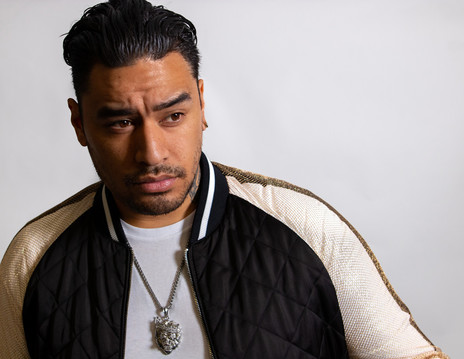
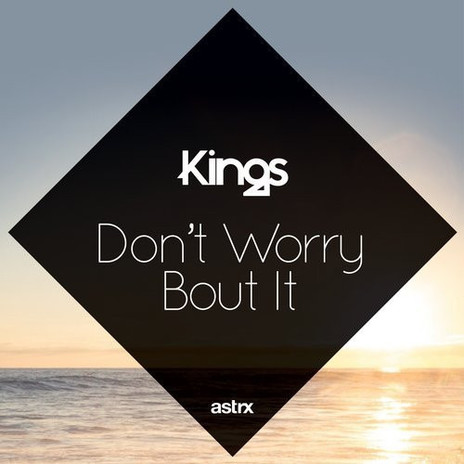
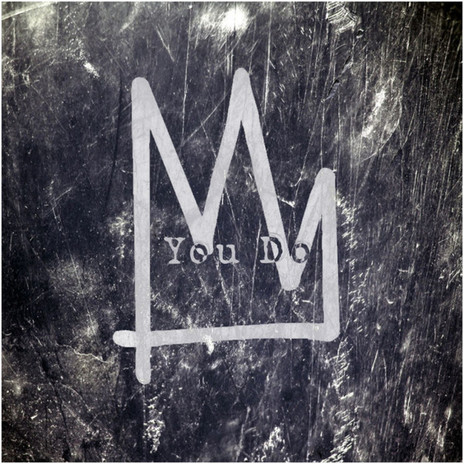
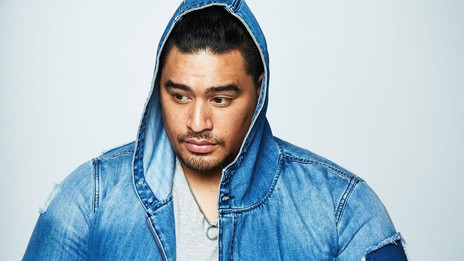
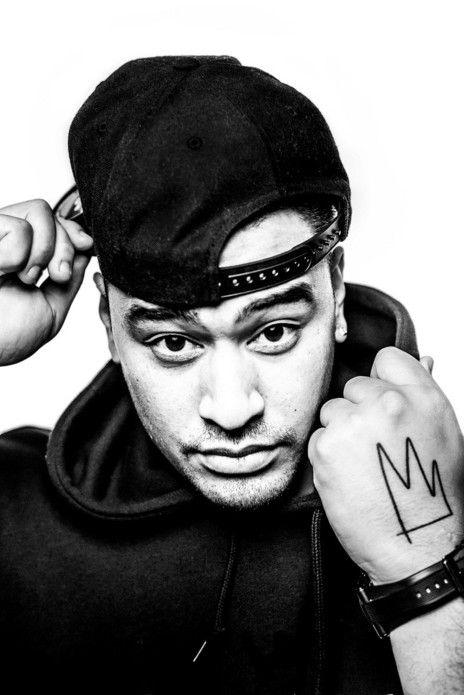
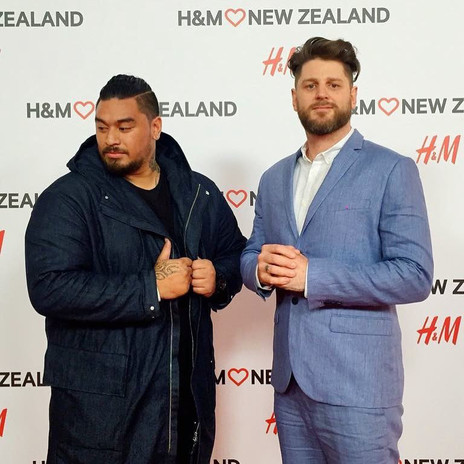
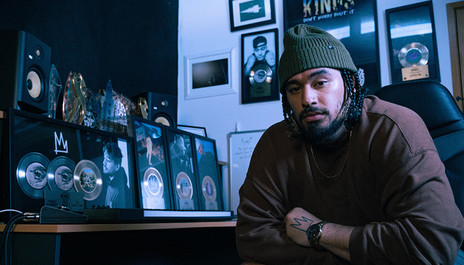
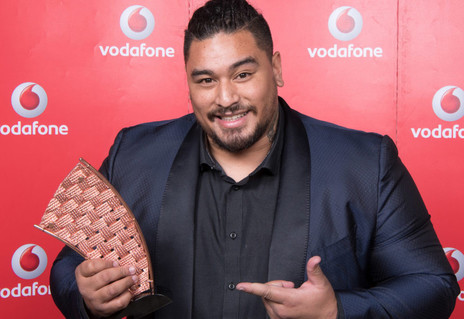
Astrx
Arch Angel Entertainment
Warner Music
Visit our sister site
NZ On ScreenMade with funding from
NZ On Air






